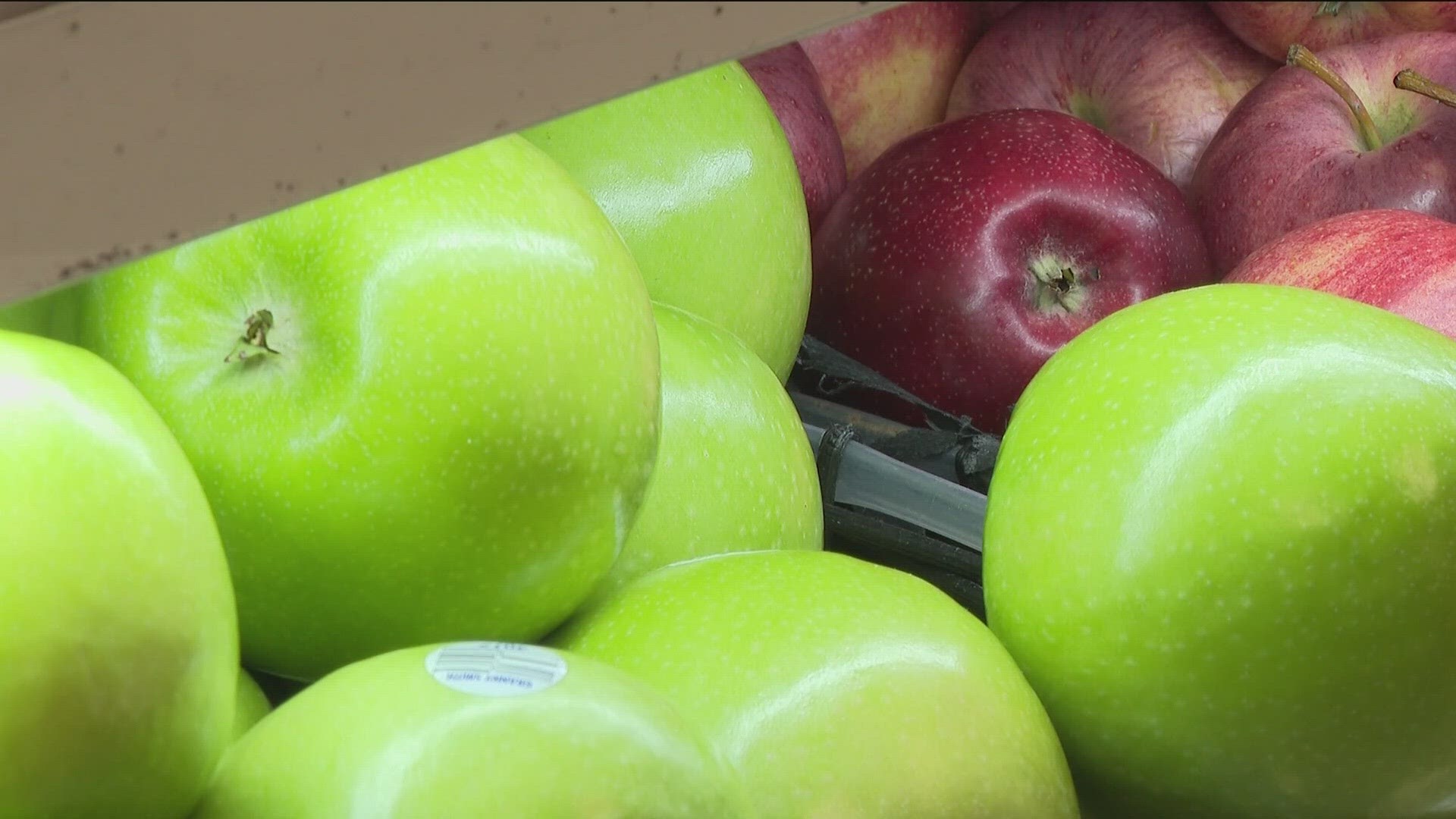ATLANTA — One day from Thanksgiving, the calls for help continue as SNAP benefit delays in Georgia impact families’ ability to provide a basic meal.
11Alive first began reporting on the situation last November and has stayed on top of updates since that time, with the state pointing to an increase in need, a shortage of workers and a push for technology to fix the backlog. Yet, 11Alive uncovered other reasons for the backup last fall, which has carried over into another Thanksgiving.
Internal documents show the system was strained by other programs state workers were juggling at the time, namely the ‘one-time cash assistance program’ and a related security issue.
THE IMPACT
SNAP is intended to be a safety net, a federally-funded program regulated by the USDA Food and Nutrition Service and administered on the state level by the Georgia Department of Human Services. But for families like Claudine-Ashleigh McKoy, whose renewal paperwork is still pending amid the backlog, that safety net has felt anything but.
“It feels like you are pretty much drowning and reaching out for help, and the system is saying ‘you’ll be fine,’” she told 11Alive.
But McKoy said she’s not fine. The holidays are already hard, with community resources spread thin. Waiting families have been referred to food banks amid the state delays with benefits, yet those resources are already dealing with an uptick in need related to inflation and other issues impacting food insecurity.
“I know we can't keep up with the requests for assistance,” Jenny Jobson with Midtown Assistance Center said.
Jobson said when families also miss SNAP benefits they depend on, the situation can easily cascade.
“It affects all parts of your budget, so you're making choices: are you purchasing food or paying bills to keep the lights on,” she explained.
THE BACKLOG
Last Thanksgiving, families reported the same issues reaching out to 11Alive with struggles in getting their SNAP benefits approved on time. Since then, 11Alive obtained internal documents which pieced together more of how the problem started, then re-occurred in the spring and has since continued.
A November 2022 report details SNAP renewals piling up and a request for overtime ‘given the hours diverted and recently devoted to the one-time cash assistance program.’
The ‘one-time cash assistance program,’ or OTCA, had launched weeks before on September 20, 2022. The $350 cash payments, Gov. Brian Kemp’s plan to provide relief to vulnerable Georgians, experienced issues following the rollout, ranging from problems accessing the funds to warnings about scammers.
Per that same Nov. 2022 report, the problems also included a security issue impacting Gateway, the system Georgia uses to manage benefit processing.
The system security issue is mentioned again in a Nov. 18, 2022 waiver from the USDA, which allowed the state to extend renewal periods for “households impacted by state anti-fraud efforts in response to suspicious activity in the State’s eligibility system.” Per the waiver, impacted SNAP families were unable to access their accounts to submit documentation starting October 5, 2022, “thus not allowing households the opportunity to file for continued, uninterrupted SNAP benefits in a timely manner.”
While the waiver’s approval fast-tracked fixes last Thanksgiving, letting the state continue benefits uninterrupted, the effort ultimately moved tens of thousands of renewals to the next year. A chain of June 2023 emails written by department leaders revealed the impact.
“We had a security issue with the Gateway customer portal that was part of the One Time Cash Assistance (OTCA) program last fall,” an explanation to the Governor’s Office of Budget and Planning reads. “This caused a disruption in service and we pushed out a lot of SNAP renewals. These renewals could only be pushed out a maximum of 6 months, which [is] why you see an increase distributed among these months.”
In fact, per those emails, the cash assistance program itself caused an uptick in applications for SNAP, with families seeking to qualify for the $350 cards. That increase in applications, the department leader stated, caused another batch of renewals to be due six months later.
To date, Georgia DHS continues to work to tackle the backlog through hiring, overtime, bringing back retired caseworkers and other efforts. When 11Alive asked the agency about the cash assistance program’s impact and the system security issues, a spokesperson sent the following statement:
“The extension of certification periods last fall is one of multiple factors that led to the backlog but is by no means the primary factor. The main driver of our uneven workload distribution is the increase in SNAP applications we receive when children head back to school each fall.”
11Alive also asked Governor Kemp’s office for a statement. The governor’s office referred questions back to DHS.
Meanwhile, McKoy is among the many still waiting. 11Alive previously reported that department emails indicate the backlog may not be fixed until January 31, 2024, though the department states "internal projections are subject to change."
“This has been a difficult year in itself,” she said. “So many people are going to have 'sleep for dinner’ because that's the only meal they'll be able to afford without their SNAP benefits.”
11Alive now has a running list of resources for families experiencing SNAP disruptions. Viewers who want to speak with a reporter about the delays can email the newsroom.

